A delegation from the VIF comprising Director, Dr Arvind Gupta, Lt. Gen. Ravi Sawhney and Dr. Harinder Sekhon visited Washington DC from 11 to 15 Nov 2019 for the annual return meetings – a bilateral on India-US relations with the Hudson Institute and a trilateral dialogue with the Heritage Foundation and the Jerusalem Centre. This opportunity was used by the VIF to hold other important meetings both with the Indian Embassy and with the US establishment.
The VIF delegation participated in various high-level meetings in Washington DC. We were hosted to a discussion over lunch by our Ambassador in Washington DC. We also met with US Lawmakers, senior US government officials, including Alice G Wells, Assistant Secretary for South and Central Asia at the US State Department and with her predecessor, Nisha Biswal, who is now President of the U.S.-India Business Council and Senior Vice President for South Asia at the U.S. Chamber of Commerce.
Bilateral at the Hudson Institute
Indo-Pacific
The bilateral dialogue with the Hudson Institute focused on the two key areas of Indo-Pacific and China’s rise besides a full panel on Afghanistan’s future. There was agreement that India and the United States share common values and strategic interests. From almost no cooperation during the Cold War, India and the United States today share a close strategic partnership. Both countries seek an inclusive global security architecture. Since the Obama era there has been a deepening partnership in the Asia (now Indo) Pacific. This engagement has only grown under Trump but what needs to be further assessed are the future contours of the Indo Pacific strategy and whether it is simply a tactic or a fully developed strategy? What role does Quad play in this?
There is a feeling in Washington DC that while the basic fundamentals of India-US relations remain strong, both countries have a strong domestic perspective to be factored in and that can be challenging at times. For example, it is largely perceived in DC that while India’s desire for strategic autonomy runs counter to the larger US grand designs and expectations, strategic partnership and strategic autonomy can co-exist but India would need to address this issue more vociferously through a stronger and clearer articulation of its Indo-Pacific strategy.
Afghanistan
On Afghanistan there was recognition that Afghanistan’s stability is critical to global and Indian strategic interests. While the panelists agreed that there are various areas on which the US and India should cooperate, the Indian and American counterparts presented different visions of how the international community should engage in India’s volatile neighborhood to bring stability. Although presenting different tactical visions of the security situations within this region, all panelists concurred that if Afghanistan implodes, “it won’t only be a problem for the region, but it will be a problem for the globe.”
India is one of the largest bilateral regional donors with around $ 3 billion in assistance to Afghanistan. Indian assistance has centered on development, economic and strategic assistance aimed at building a strong Afghanistan. Indian leaders have often said India remains fully committed to Afghan stability and have no exit strategy in Afghanistan. With the United States moving towards a military drawdown and withdrawal from Afghanistan – and the broader region – what will India’s strategy be in the days and months ahead?
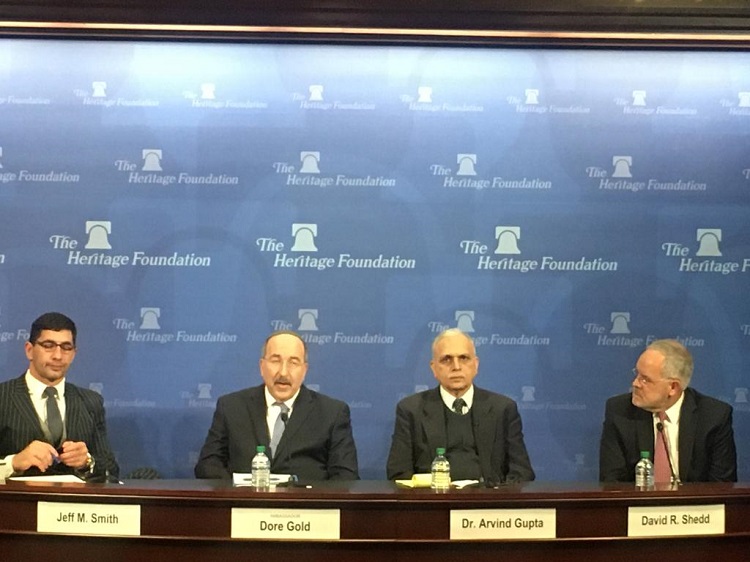
Trilateral Dialogue with Heritage Foundation and Jerusalem Centre
A two-day Trilateral Dialogue with the Heritage Foundation and the Jerusalem Centre focused on three key issues:
- Shared regional threat assessments on conflict zones, including Afghanistan, Syria, Kashmir, the Middle East
- Opportunities for greater cooperation in defense, economics, intelligence, and technology
- China’s rise and its impact on the interests of each country and the Indo-Pacific at large
This Dialogue is based on the understanding that recent years have witnessed new patterns of cooperation among India, Israel, and the U.S., three key democracies that face common threats from Islamist terrorism and share common values. While Israel and the U.S. have enjoyed a steadfast partnership stretching back many decades, over the past 15 years India and the U.S. have developed an increasingly robust strategic partnership. Similarly, after decades of relative disassociation, India and Israel have begun elevating bilateral ties in a more public manner, culminating in a landmark visit to Israel by Prime Minister Narendra Modi in 2017. From then on the India-Israel partnership has only grown in strength both strategically and in the economic domain and the two cooperate in key areas like Information Technology, Cyber Security, Science and Technology, Intelligence sharing and Defence.
Other Important Meetings
Besides the two formal annual Dialogues, the VIF team engaged in other key meetings with US officials and representatives of US business. An important meeting was with the US Acting Assistant Secretary of State for South and Central Asia Alice G Wells at the State Department. It was a candid discussion on regional issues and developments in South Asia.
The meeting with Nisha Biswal focused on the steps that are necessary to take US-India economic relations to a higher level of cooperation. American industry has identified concerns on tariffs on ICT, price controls on medical devices, the USTR has also identified concerns like market access on agricultural products, as well as issues the Indian side has highlighted, including the Section 232 tariffs (tariffs on steel and aluminum imposed last year), the withdrawal of India’s GSP status, etc. These are all in the mix. And the feeling is that it is not difficult to find an agreement that meets the core concerns and moves us beyond these issues. Compared to trade negotiations the world over, India and the US have a fairly manageable basket of issues which are not difficult to resolve.
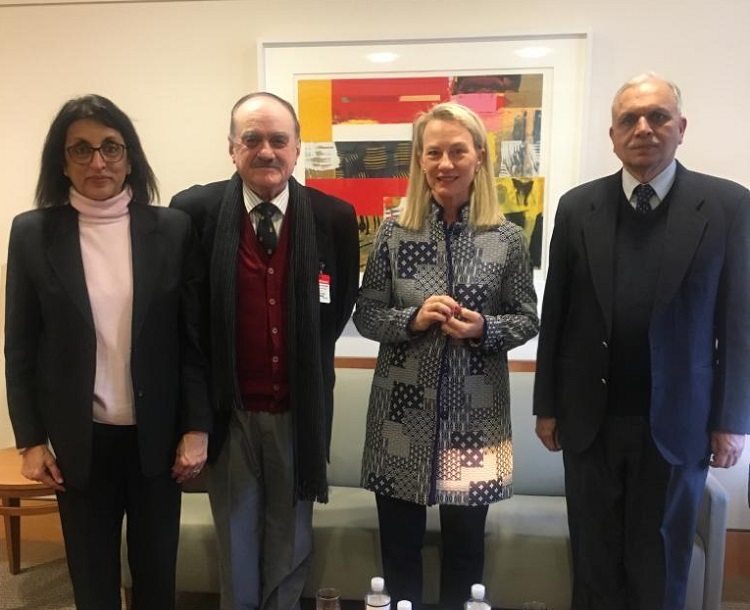
The VIF delegation also held a Round Table discussion on US-India Defence Relations with the Defence wing of the US-India Strategic Partnership Forum to which representatives from the State Department, US National Security Council and Industry were present. The three Defence Attaches from the Embassy of India were also present and made relevant presentations on the next steps in India-US defence cooperation.
Important Takeaways
An important impression gathered from the visit was that while US-India relations are on a stable trajectory upwards, there remain irritants that hinder the relationship from reaching the next levels. These include US role and policies in India’s neighborhood, especially its role in the Afghan peace talks, divergent Intellectual Property Rights standards between India and the US, and Foreign Direct Investment caps. The US and India must however continue to engage in an open dialogue to address these issues. If they carry on doing so, there is hope that this friendship can become the most significant partnership of the 21st century.
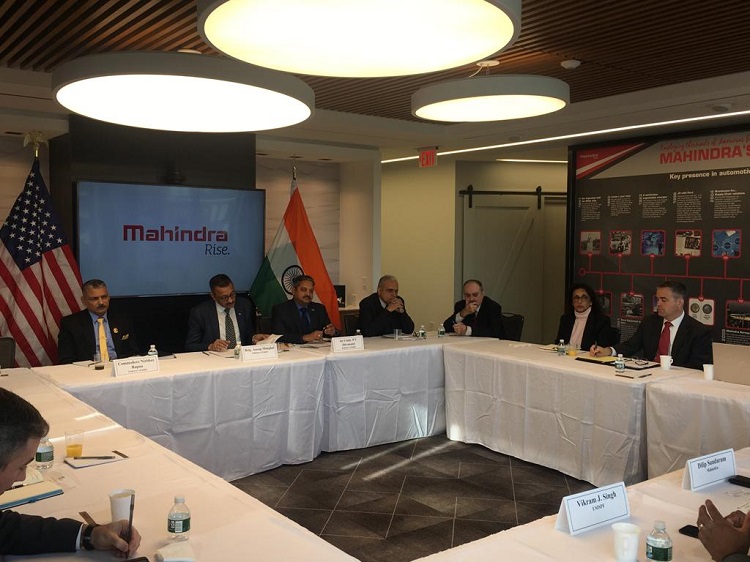
While there was deep appreciation for India and the role India has played in being an important US partner in a difficult region, the Trump administration seems to be distracted due to its domestic compulsions that have become critical as the US heads towards a new election year. The Indian side conveyed its hopes for a broader vision in US strategic thinking that would move US policy beyond mere “fashion statements” through a sincere commitment to take definite steps to remove the irritants in the relationship.

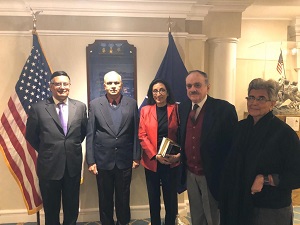
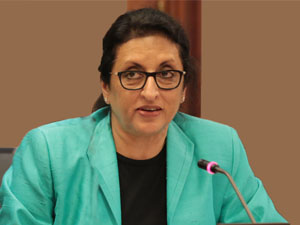





Post new comment